Hemorrhoid surgery complications can cause a patient’s great pain and disability. These may include fecal incontinence, anal stenosis, and bowel obstruction, which can result from factors such as infections or nerve damage. Comprehensively comprehending and effectively managing these complications is crucial to mitigate any further harm inflicted upon the patient.
Closed hemorrhoidectomy has a 95% success rate, but there are potential risks. After surgery, complications may include pain, bleeding, urinary retention, infection, and more. Hemorrhoidectomy is the surgical intervention for hemorrhoids.
The treatment of hemorrhoids ranges from simple outpatient procedures without anesthesia to more complex inpatient procedures. Symptom severity and associated complications determine treatment options.
In this blog post, we will discuss potential side effects associated with short-term and long-term hemorrhoid surgery, as well as other acute complications that may arise.
Hemorrhoid Surgery Complications: Short-Term Effects

Hemorrhoid surgery, or hemorrhoidectomy, is a medical procedure for removing swollen lymphatic vessels. Although it can provide relief from hemorrhoid discomfort, including pain, bleeding, and itching, it is not without potential complications.
Here are some of the short-term complications of hemorrhoid surgery you should know:
Pain and Discomfort
Hemorrhoids often cause pain and discomfort in the anal region after surgery. It may be necessary to take acetaminophen or ibuprofen daily to manage this for several days. Some patients may also have difficulties sitting, walking, or moving around.
Bleeding
Another complication of hemorrhoid surgery is bleeding. It may occur during surgery or afterward when the patient passes stools.
It is expected to experience some bleeding, but excessive bleeding may show complications, such as infection or tissue damage.
Infection
Infection can occur during any surgical procedure, and hemorrhoid surgery is no exception. Infection symptoms may include fever, chills, redness, swelling, discharge, and foul odor from the surgical site.
When infection is severe, it can lead to sepsis, a life-threatening condition that needs immediate medical attention.

Urinary Retention
Urinary retention is when patients have difficulty passing urine after surgery. It can be caused by the swelling and inflammation in the pelvic area and the anesthesia used during the surgery.
Without treatment, urinary retention can cause complications, such as infection and kidney damage.
Hemorrhoid Surgery Complications: Long-Term Effects
Hemorrhoid surgery is a widely performed procedure to help relieve the painful symptoms of hemorrhoids. While it is considered a safe procedure, potential complications can arise in the short and long term. This blog post will focus on the long-term complications of hemorrhoid surgery.
Anal stenosis
Anal stenosis is a condition in which the anal opening becomes narrowed, making bowel movements difficult. It can occur because of scar tissue formation from hemorrhoid surgery. Some facts to note about anal stenosis include:
- Approximately 20% of hemorrhoid patients develop anal stenosis.
- Anal stenosis is characterized by difficulty passing stool, painful bowel movements, and a feeling of incomplete evacuation.
- Dilation or surgery may stretch the anal opening in anal stenosis.
Fecal Incontinence

Involuntary leakage of stool results in involuntary leakage of stool. Hemorrhoid surgery can cause this as a complication caused by nerve or muscle damage in the anal region. The following are some crucial facts about fecal incontinence:
- Fecal incontinence can occur in up to 10% of hemorrhoid surgery patients.
- There are a variety of symptoms associated with fecal incontinence, such as sudden urges to poop, inability to hold stool, and leakage of stool.
- Medication, dietary changes, or surgery may treat fecal incontinence.
Dysfunctional Pelvic Floor
The condition is characterized by weak muscles and tissues in the pelvic area. Anus and rectum anatomy can be altered by hemorrhoids, causing dysfunction of the pelvic floor. Pelvic floor dysfunction may be caused by the following factors:
- Incontinence, pelvic pain, and pain during sex are all symptoms of pelvic floor dysfunction.
- Approximately 14% of patients who undergo hemorrhoid surgery experience pelvic floor dysfunction.
- Pelvic floor dysfunction may be treated with pelvic floor physical therapy, medications, or surgery in severe cases.
Ectropion
Ectropion occurs when the inner lining of the anal canal turns outward and protrudes through the rectum following hemorrhoid surgery. This can cause discomfort, bleeding, and bowel problems. Here is some information for managing ectropion after hemorrhoid surgery:
- Working with a doctor to determine the treatment may include medication, surgery, or other interventions.
- You Should Use stool softeners or laxatives to prevent straining during bowel movements.
- An exercise regimen and a high-fiber diet can prevent constipation.
- Seeking follow-up care to monitor the condition and address any new symptoms.
Chronic Pain
Hemorrhoid surgery is a standard procedure for individuals experiencing painful hemorrhoids. While the surgery can provide relief, there are risks associated with the technique, including the development of chronic pain. An individual with regular pain experiences pain for over 3 months, which can significantly affect a person's quality of life. Here are some Causes of Chronic Pain After Hemorrhoid Surgery:
- Nerve injury during surgery.
- Scar tissue formation.
- Muscle spasms.
- Inadequate pain management post-surgery.

Hemorrhoidectomy Surgery Other Acute Complications
You should know the potential complications of hemorrhoid surgery. Hemorrhoidectomy surgery can cause acute complications that require immediate medical attention. Acute complications include allergic reactions, anesthesia-related complications, cardiac or pulmonary complications, bleeding, and microbial infections.
The potential for allergic reactions
Some allergic reactions occur following acute complications following hemorrhoidectomy surgery. During surgery, allergic reactions can occur because of various factors, such as anesthesia, medication, or latex. Allergies can cause symptoms ranging from minor irritations to life-threatening anaphylaxis.
Anesthesia-Related Complications
During hemorrhoidectomy surgery, anesthesia is used for pain relief. Anesthesia-related complications can occur and should be closely monitored. Complications include:
- Nausea and vomiting.
- Headaches.
- Difficulty breathing.
- Low blood pressure.
Cardiac or Pulmonary Complications
hemorrhoidectomy surgery can also cause cardiac or pulmonary complications. Patients with a history of heart or lung disease. The following are some of the standard cardiac or pulmonary complications:
- Heart attack.
- Stroke.
- Blood clots.
- Pulmonary embolism.
Hemorrhage

Bleeding can occur after hemorrhoidectomy surgery. Small amounts of bleeding are average, but excessive bleeding requires medical attention. The following signs and symptoms characterize excessive bleeding:
- Blood on the stool.
- Dizziness and lightheadedness.
- Nausea and vomiting.
- Abdominal pain.
- Rapid heart rate.
Microbial Infection
Infections caused by bacteria can also occur after hemorrhoidectomy surgery. Medical attention should be sought immediately if the surgical site becomes infected. Infections can cause the following symptoms:
- Redness and swelling around the surgical site.
- Fever.
- Pus is draining from the wound.
- Pain or tenderness at the surgical site.
Conclusion
A hemorrhoid surgery can be an essential decision, and you should know potential complications before committing to the procedure. Before undergoing surgery, patients should consider the risks and discuss them with their healthcare provider.
Knowing what to expect can cause better outcomes and faster recovery times. You should always make an informed decision regarding any medical procedure.

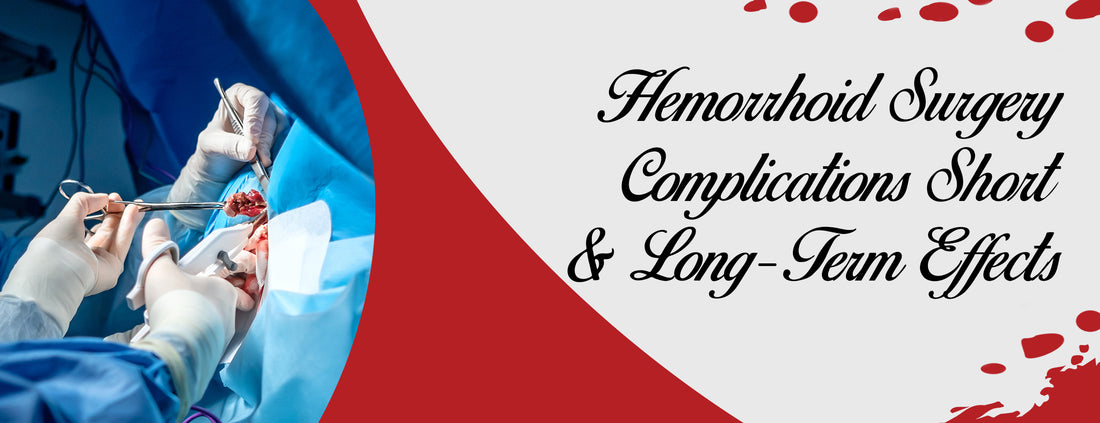



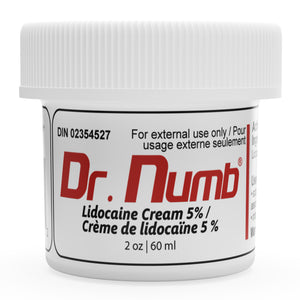

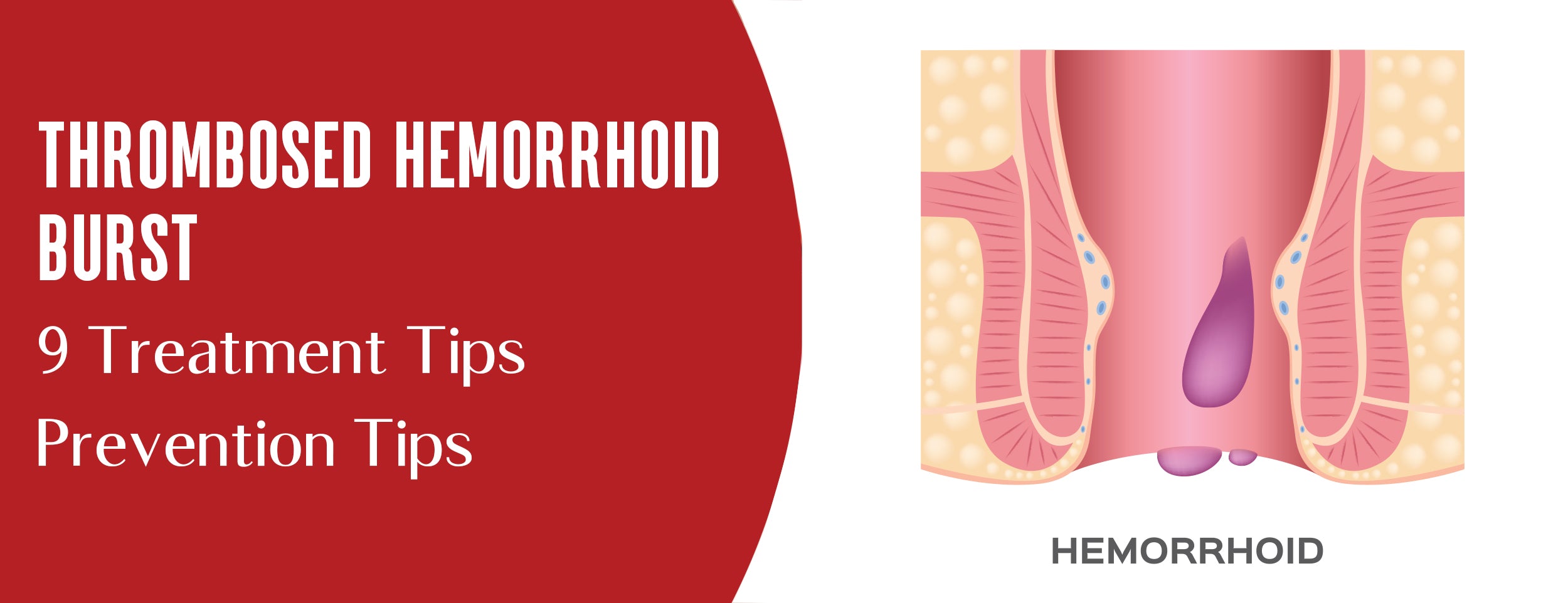
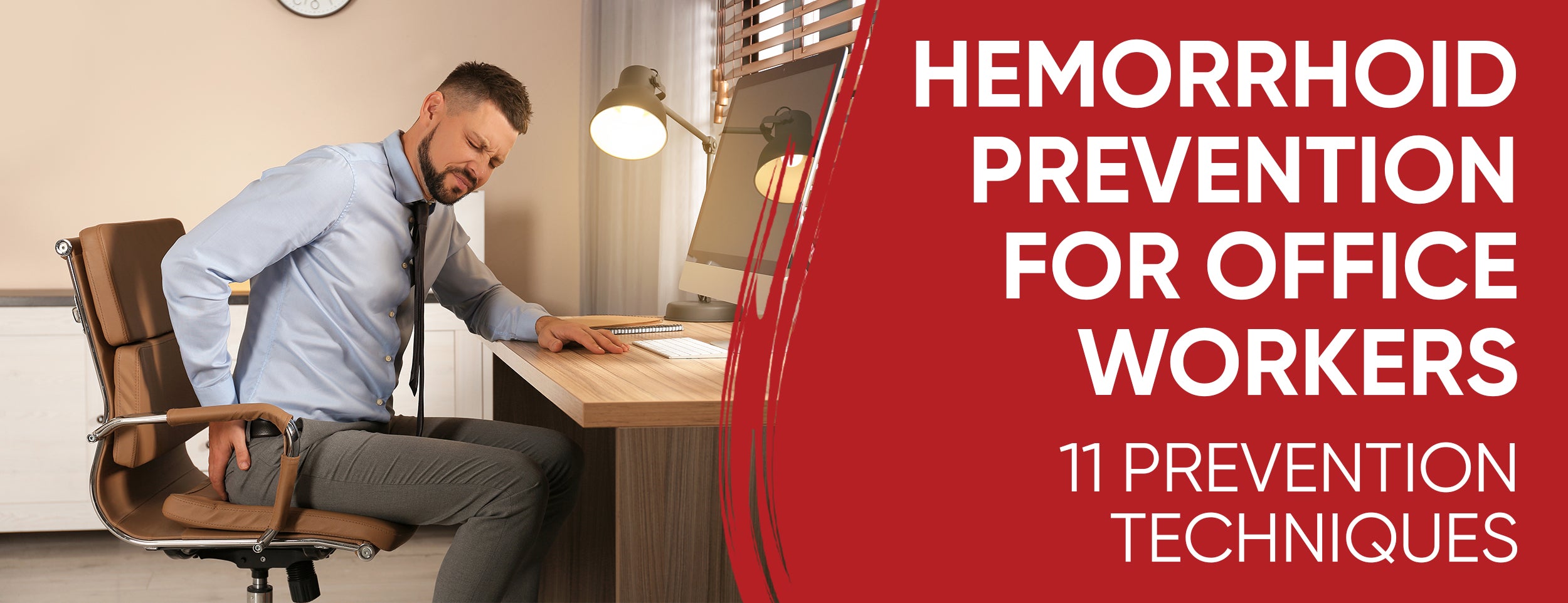
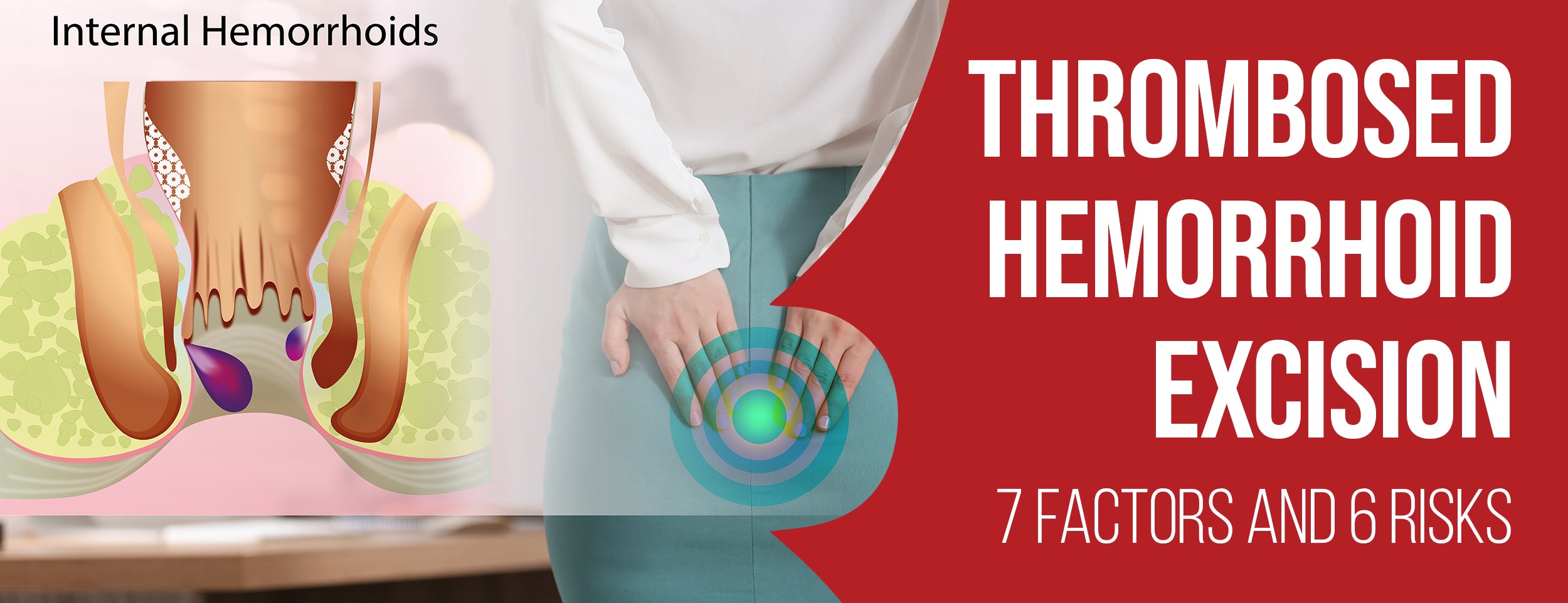
![Precautions & 6 Steps to Draining Thrombosed Hemorrhoids [DIY]](http://drnumb.ca/cdn/shop/articles/Draining_Thrombosed_Hemorrhoid_Yourself__6_Steps_8_DIY_Tips_With_Precautions.jpg?v=1713931775)

